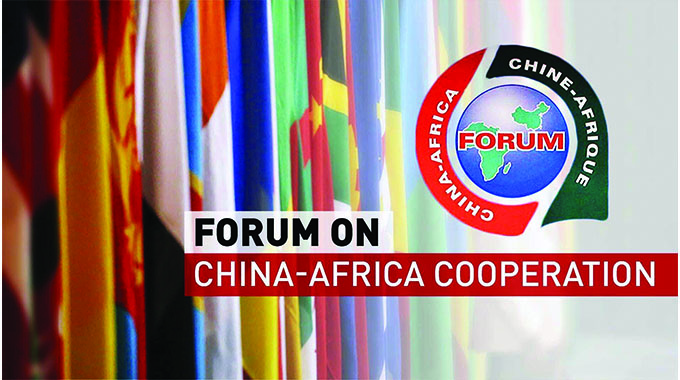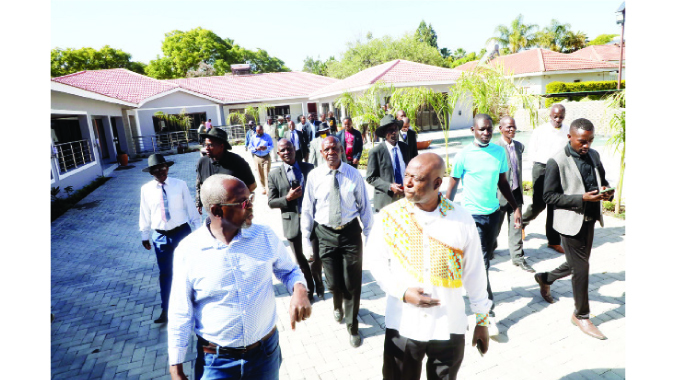Understanding Africa-China relations beyond social media odium

Ranga Mataire, Group Political Editor
In the aftermath of the Forum on China-Africa Cooperation (FOCAC) in Dakar, Senegal last December, many self-appointed African pundits made vitriolic comments regarding China’s investment foothold on the continent.
This negative portrayal, which is fuelled and funded by the West appears to have continued unabated especially among Africans easily swayed by decontextualised social media titbits.
Granted that many of the pundits are Western educated, trained and centred, one would still have expected a fair historical judgement of China’s role in Africa before and after the end of colonialism.
Sadly, even those among us that we expect to be knowledgeable have fallen victims to a social media frenzy fed on ignorance.
A lot of blatant lies have been peddled about China being the new colonial power in Africa.

Africa
Some have even coined phrases like “debt trap diplomacy.”
You hear a supposedly learned opposition legislator Charlton Hwende saying “Chinese are the new colonisers and must not be embraced but fought.” Really?
Others have kowtowed mundane social media monkeyshines that obfuscate the ability to discern reality from bluster.
We need to move away from being intellectual zombies and go deeper in unravelling what is at the crux of the Africa-China relations.
We need to objectively unpack why the West, particularly the United States is piqued by China’s blossoming relations with Africa.
China is not irreproachable, but much of what people are fed with is nothing but hoopla.
Here is why.
Some time ago there were social media reports that Zambia’s power utility, Zesco as well as the country’s airport had been taken over by China because the country defaulted on loans.

The truth is in the case of the airport, the construction is ongoing, which makes it improbable for any defaulting so early in the project.
And yet stories were written about all this without the slightest verification.
We also need to debunk the myth that Africa is being colonised by China.
This myth ignores the agency of our own African leaders in negotiating deals that benefit the continent best.
We create the impression that Africa is cursed in not having a leadership capable of negotiating in our best interest.
The Sinophobia would have us believe that Chinese loans are dominating Africa.
This is a lie. Simple research reveals that China’s US$115 billion to Africa between 2000 and 2016 is still less than two percent of the total US$6.9 trillion of low and middle income countries’ debt stock.
China is thus not the biggest driver of debt grief in Africa.
It is a myth that Chinese loans are leading us to a labyrinth which will force us to forfeit our mineral resources.
A 2016 report written and researched by Mark Curtis titled “The News Colonialism: Britain’s Scramble for Africa’s Energy and Mineral Resources” reveals the extent to which British companies now control Africa’s key mineral resources, notably gold, platinum, diamonds, copper, oil, gas and coal.
It documents how 101 companies listed on the London Stock Exchange (LSE) – most of them British- have mining operations in 37 sub-Saharan African countries and collectively control over US$1 trillion worth of Africa’s most valuable resources.
Britain’s firms hold mineral licences across 37 African countries covering a massive 1.03 million square kilometres. This is four times the size of the UK and nearly one-twentieth of sub-Saharan Africa’s total land area.
These are the facts that one cannot get from social media.
The criticism about Chinese loans deliberately ignores decades of damage done by IMF and the World Bank loans across Africa and the rest of the developing world.
The allure of Chinese money is irresistible.
The United States has about US$1.8 trillion of Chinese money.
What all this shows is that much of the Sinophobia is driven by ignorance.
Ignorance of the fact that IMF and World Bank loans come with austerity obligations which in many instances have left African countries poorer and yet we can’t say the same about Chinese loans.

The truth is that Chinese loans are not inherently good or bad.
It all depends on what we choose to make of them.
What is clear is that unlike the Americans, Chinese foreign policy towards Africa seeks multi-polarity and not dominance or conditional aid.
In comparison, Africa-US relations are marked by a clear difference in value system born out of varying historical perspectives and how the two situate themselves in the global scheme of things.
One would have expected that in the post-colonial, post-Cold War and post-communist containment period, relations between Africa and the United States would be informed by the need to establish a New International Economic Order based on mutual respect and the sanctity of sovereignty.
Sadly, the US foreign policy towards Africa has failed to evolve from being omniscient to humanistic.
It has failed to move away from its fixation on blackmailing and blacklisting “deviant” states through imposition of sanctions and even waging wars.
It is surprising that even with the full knowledge of its lopsided foreign policy especially when juxtaposed with China’s multi-polarity and non-interventionist approach, the US continues with its impetuous intrusive and fatally destabilising attitude.
In contrast, China has succeeded in creating a mutually beneficial economic platform different from America’s conditional aid.
Before its emergence as a serious global power, the period succeeding the Cold War was characterised by Britain, France and the United States as major powers with significant interest and influence in Africa south of the Sahara.
It was China’s adoption of liberal economic policies that led to its renewed drive to strengthen economic ties with Africa.
China focused on debt cancellation and offered aid without political conditions and consequently gained valuable diplomatic support to defend its international interests.
It therefore comes as no surprise that China has today emerged as an influential player on the African continent.
It is because of its goodwill.
Most African nations find China’s foreign policy dynamic, constructive and flexible especially as it seeks to intensify its involvement in security issues and multilateral organisations.
Majority African nations have welcomed China because its presence provides a mix of political and economic incentives, which creates a win-win situation.
While the West, particularly Britain, is ahead in terms of its foothold on Africa’s mineral resources, more and more African nations are finding China a better economic partner for trade.
Another factor that makes China an amenable partner is its non-interference in the domestic affairs of individual states.
What is often missed in the framing of China-Africa relations in comparison with the US is that the latter is stuck in immortalising its self-importance in world affairs.
America is stuck in 1782 when writers and poets waxed lyrical about it being the “first nation.”
Herman Melville considered his countrymen as a “peculiar chosen people, the Israel of our times: we bear the ark of liberties of the world.”
It appears that attitude has not changed










Comments